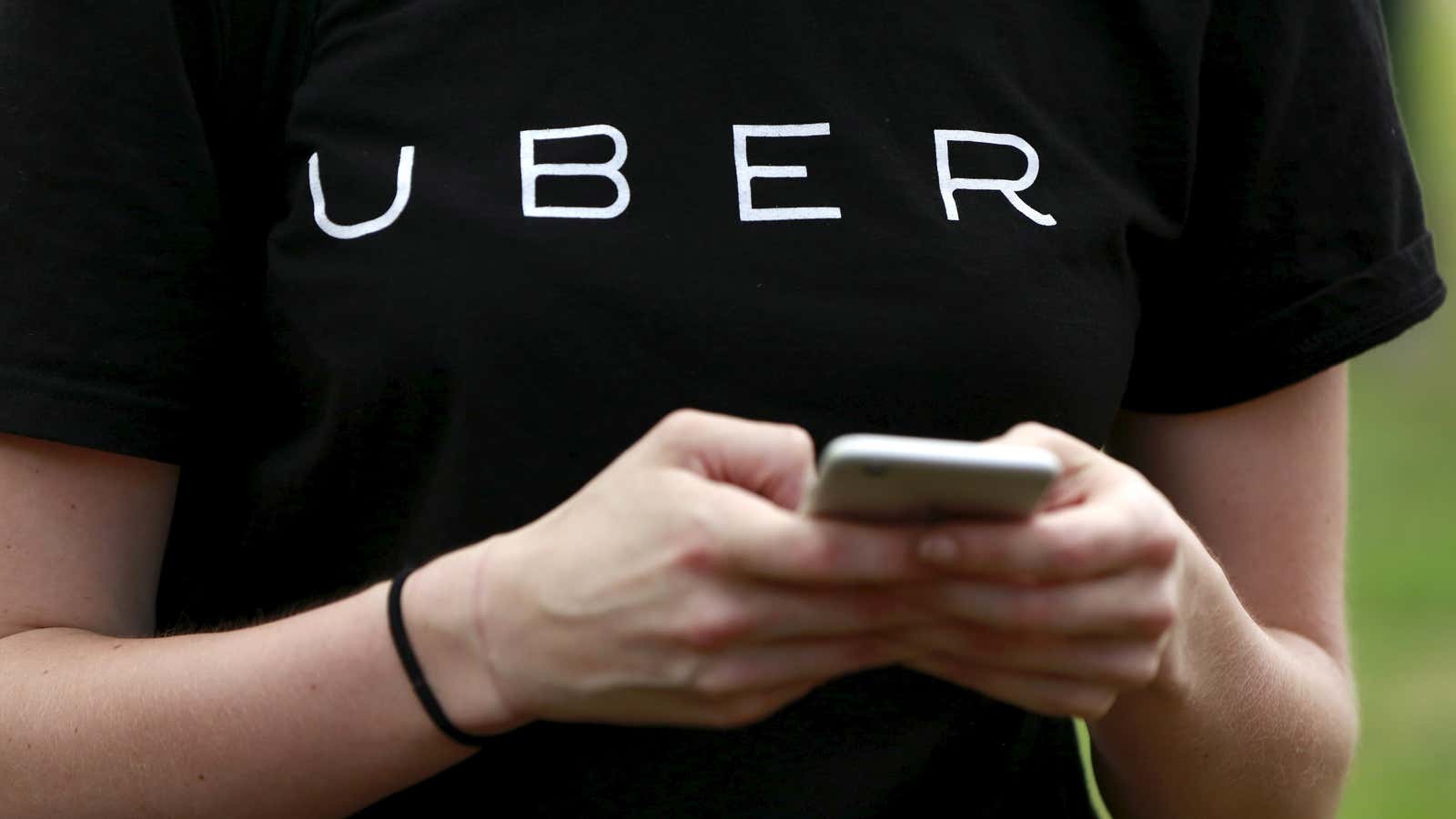Over the weekend, we reported on Uber’s stealthy new effort to dissuade drivers in Seattle from unionizing: It’s directing its US customer service representatives to call thousands of drivers for a satisfaction survey, and then having them deliver a spiel against organizing. Now you can read the script these reps are following.
First, a bit of background: Seattle granted drivers the right to collective bargaining in December, making it the first city in the US to do so. Drivers in favor of organizing believe it would help them negotiate with the company on everything from fares to the five-star rating system. “We need to be paid more, that’s the ultimate goal of the collective bargaining,” Don Creery, an Uber driver in Seattle since January 2014, told me last week.
Uber, unsurprisingly, disagrees with this strategy. “It’s not clear a traditional union can serve such a large and varied group of people,” an Uber spokeswoman told Quartz.
While Uber likes to talk about drivers as “small business entrepreneurs,” the company depends on retaining control of the fundamentals—i.e., fares, routes, and ratings. Effective collective bargaining by drivers would undercut that.
Uber is rich enough that it could weather unionization in Seattle, but if drivers across the US followed suit, the risks to the company would quickly escalate. Killing the movement in Seattle could be Uber’s best shot at forestalling similar action nationwide.
Quartz obtained a copy of the script that Uber has been using in Seattle since mid-January. Read it below.
Uber Rep: Hi, this is [your name] calling on behalf of Uber, may I speak to [partner name]?
Uber Rep: First of all, Happy Holidays and thank you for partnering with Uber. Do you have time for a few quick questions about Uber here in Seattle?
[If no] XXX
Uber Rep: Great. First, on scale of 1 to 5, with 1 being not at all satisfied and 5 being very satisfied, how would you rate your overall satisfaction with driving on the Uber platform?
Code answer. [Code “Don’t know” but do not read as an option]
Uber Rep: And again on scale of one to five how would you rate the support and customer service you receive from Uber when you have a problem or a question?
Code answer. [Code “Don’t know” but do not read as an option]
Uber Rep: Have you visited the Partner Support Center in person?
[If yes] On a scale of 1 to 5 how would you rate the support you received there?
Code answer. [Code “Don’t know” but do not read as an option]
[If no] As a reminder, the Partner Support Center hours are 10am to 5pm Mondays through Fridays. It is located at 217 2nd Avenue S Seattle, WA 98103.
Uber Rep: And yes or no, are you satisfied with the communication you receive from Uber about prices?
Code answer. [Code “Don’t know” but do not read as an option]
Uber Rep: Just a couple final questions. Are you familiar with a new law passed recently by the Seattle City Council that would allow ride-sharing and taxi drivers to form unions and collectively bargain?
[If no] Would you be interested in learning more about it?
[If no] terminate.
[If yes] Let me share some thoughts on the ordinance. The Seattle City Council did vote to allow ride-sharing and taxi drivers to form unions and collectively bargain. However, ride-sharing, like Uber, is a case where collective bargaining and unionization do not fit the characteristics of how most partners use the Uber platform. Collective bargaining usually takes place in situations with a workforce of individuals who have a boss, work scheduled hours, usually full-time, and intend to make that job a career. That’s not how most Uber drivers use the platform. No two Uber partners are the same: 69% of Uber drivers have full- or part-time work outside of Uber, and 11% are students. Over half who drive in Seattle drive under 10 hours per week. This is simply a case where collective bargaining and unionization do not fit the characteristics of the work.
Thanks for your time and thanks again for partnering with Uber.
